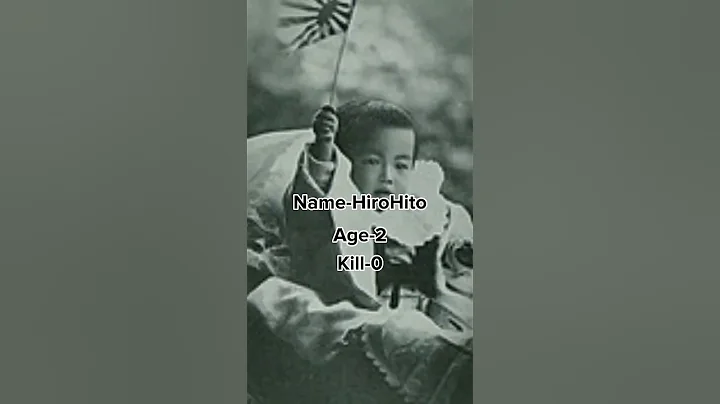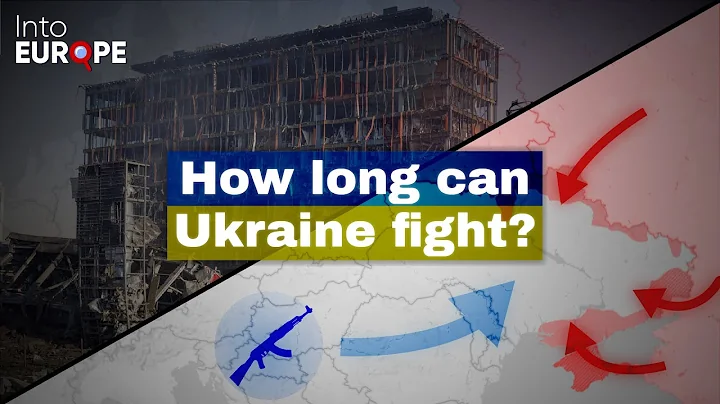The relationship between China and Japan is one of feud and national hatred. Shinzo Abe was assassinated. This incident has also aroused heated discussions in China, but the most popular view is "eat the melon". This cannot be said to be that the quality of the Chinese people is low. It is really that period History is too unforgettable for two. Every time we hear Japanese militarists clamoring to glorify the war of aggression, patriotic Chinese people will stand up and fight back. Most of these counterattacks are verbal crusade, and at most they express their anti-Japanese attitudes on various social platforms. , but there are also people who use their own actions to oppose Japan's beautification of the war of aggression against China. He not only dared to set fire to the Yasukuni Shrine in Japan, but also burned the Japanese embassy twice. This person is the famous Liu Qiang who burned the Yasukuni Shrine in Japan in 2011. .
Liu Qiang’s parents are from Shanghai, and he himself is highly educated. He is not one of those angry young people who do stupid things when his brain gets hot. But why did he go to the Yasukuni Shrine to set fire, and after setting the fire, he went to South Korea to repeat the same trick? Woolen cloth? What will be his final fate? Today we will talk about the causes and consequences of this matter.

Liu Qiang was born in Shanghai, China. Growing up in the magic city of China, he was exposed to a lot of things very early. He is knowledgeable and versatile, and has taught himself many languages. In our opinion, such a person cannot interact with arson. Because some people will definitely ask, why do people who live such a happy and stable life go abroad to set fires? Here we will introduce Liu Qiang’s family situation. Liu Qiang's grandfather Liu Biesheng was a general of the New Fourth Army during the Anti-Japanese War . He joined the party organization in 1934 and later became the leader of the New Fourth Army. The regiment he led was known as the " During the Anti-Japanese War , under the leadership of Liu Biesheng, the Tiger Regiment became a team that was feared by the Japanese invaders. They were also jealous of talents. Liu Biesheng died on the battlefield in the late period of the Anti-Japanese War, that is, in June 1945, at the age of 30. Perhaps it was his regret not being able to see and Japan surrendering to .
Liu Biesheng's grandmother Yang Ying is Korean , her real name is Li Nanying, and she is from Pyongyang, South Korea. When Japan launched its war of aggression against China, it was only one of the battlefields of Japan's war. He also greedily launched aggressive wars against other Asian countries, including South Korea at that time. Li Nanying's hometown was also invaded by the Japanese army, and his father was also He was beaten to death for secretly teaching students Korean . At that time, the Japanese army did all kinds of evil on the Korean Peninsula. The most disgusting thing was to capture those helpless women to serve the soldiers. That is what we say "comfort women".
Li Nanying, who was still young at the time, was one of them and was brought to China for those beasts to vent their anger. After being humiliated and tortured by the Japanese army, they managed to survive and were ruthlessly returned to China after the Japanese army was defeated and surrendered. Li Nanying was one of them. Later, Li Nanying changed her name to Yang Ying and settled down in China. Although Li Nanying lived a stable life in China, he never came out of the shadow of the past until his death. After being devastated, he suffered from serious physical and mental illnesses. Almost the entire second half of his body was waiting for an apology from the invaders, but he never came out of it until his death. When it came to apologizing, even the former invaders did not acknowledge that dirty history.

Liu Qiang grew up in such a family. He listened to his elders telling about that history since childhood, which made Liu Qiang hate the invaders very much when he grew up. He has never forgotten that humiliating history, but after all, he has accepted it. A person with higher education, as an adult, he thinks about things very rationally and can distinguish between good and evil. He does not hate all Japanese people. What he hates are those former invaders and those who still refuse to admit their crimes. The Japanese who advocate militarism are still very friendly to ordinary Japanese people and have even made many Japanese friends.
When the earthquake occurred in Japan in 2011, Liu Qiang saw so many ordinary Japanese people suffering. As a qualified psychological counselor and a volunteer in the Wenchuan earthquake, he resolutely came to Japan and became a A volunteer participated in the rescue work of the Fukushima nuclear leakage . During this period, he also enrolled in a Japanese class to learn Japanese and use his newly learned Japanese to provide some psychological counseling for people in the disaster area.
While studying Japanese, Liu Qiang discovered that the Japanese in the school had natural discrimination against the Chinese who studied Japanese here. Those Japanese teachers greeted students from their own country and other countries with smiles, but were very perfunctory and indifferent to Chinese students. Necessary courtesy. In Japan, Liu Qiang also met some descendants of soldiers who participated in the war of aggression against China. Due to the glorification of the war of aggression in Japan for many years, these people, instead of feeling ashamed about the fact of aggression, were proud of some of the things their predecessors had done.
After discovering these behaviors, Liu Qiang was very angry. While studying Japanese, he even had a dispute with the school's dean of academic affairs. The dean of academic affairs even affirmed the Japanese soldiers and said that there was nothing right or wrong in executing orders as soldiers. Liu Qiang became angry after that. Full of disappointment, he decided to personally promote the correct history in school.
So at a school party, the versatile Liu Qiang took the opportunity to tell everyone about the various crimes committed by the Japanese invaders in China and the comfort women after performing his talents. Many Japanese expressed their opinions after listening. of shock and disbelief. This incident also had a greater impact. Liu Qiang was soon expelled from the language school. After leaving the language school, Liu Qiang did not directly retaliate against Japan. He still went to Fukushima to rescue the victims and donated blood when he should. He never backed down and helped many victims get out of their psychological shadow. The local people also spoke highly of Liu Qiang. The Japanese media made special reports on Liu Qiang and praised him as "a Chinese who truly loves Japan." .

During his volunteer service, Liu Qiang not only helped others but also spread the true history to the Japanese people. Liu Qiang was quite pleased, but the next two things completely led to the later arson incident.
The first thing that happened was that the then South Korean Prime Minister visited Japan and once again proposed to Japan to solve the problem of Wen'an Mansion, but was directly rejected by the then Japanese Prime Minister and directly denied the fact of "comfort women".

The second thing was that 68 newly elected Japanese members of Congress openly visited the Yasukuni Shrine.
Liu Qiang in Japan was completely angered after seeing reports of Japan paying homage to the Yasukuni Shrine, so a bold plan came into his mind. The "Burning Yasukuni Shrine" was formed.
Liu Qiang is a man of action, and he implements what he has decided on quickly. He set the time on the day of his grandmother's death. He first bought a few cans of gasoline in Fukushima, and then took the main line to Chiyoda, Tokyo, where the Yasukuni Shrine is located. After putting the luggage and gasoline in the hotel, I went to the entrance of the Yasukuni Shrine in advance, and then returned to the hotel to make a simple flame bottle. So, in the early morning of December 26, 2011, a young man came to Chiyoda, Tokyo, Japan, and stood in front of the Yasukuni Shrine. In front of the entrance, after lighting the nozzle of the flame bottle, he immediately threw it towards the Yasukuni Shrine in front of him... He was Liu Qiang.
After doing this, he safely got on the plane to South Korea. Because the staff of the Yasukuni Shrine responded too quickly, the fire was quickly brought under control. However, at the time, Japan thought that the arsonists were Koreans, but they were already in the country. Liu Qiang of South Korea did not let the Koreans take the blame, but stood up and publicly admitted his behavior. However, Japan did not have any regrets after that, so he started his next plan------- Burn down the Japanese embassy in South Korea.
Two weeks after the Yasukuni Shrine was set on fire, the same thing happened at the Japanese Embassy in South Korea, with the same person and the same flame bottle, but this time Liu Qiang did not leave. After setting the fire, he quietly waited for the embassy security. After controlling him, he didn't resist at all, but smiled as his plan was implemented.

Since Liu Qiang was caught in South Korea, the South Korean police came forward to deal with it. However, after understanding the ins and outs of the matter, South Korea instead of treating him as a criminal, instead called him a hero. Japan would definitely not be willing to do this, so Putting pressure on South Korea, Liu Qiang finally took responsibility for his actions and was sentenced to ten months in prison. The Japanese government, which was pushing further, still insisted on extraditing Liu Qiang to Japan. Now the Chinese government They directly stood up to support Liu Qiang. After learning about the incident, the anti-Japanese people in South Korea held a large-scale demonstration and refused to extradite Liu Qiang to Japan. In the end, the South Korean government could only treat Hao Yuhao in prison as a "political prisoner" After drinking, Liu Qiang was sent back to China.

After returning to China, Liu Qiang was not further restrained, but people around him gave him mixed reviews. Some thought he was a temperamental person who vented his anger on the Chinese people, while others said he was too extreme and gradually alienated him. It was also because of this incident that Liu Qiang lost his original job, but he did not regret his job. Now he is a member of the "Ryukyu History Research Association" and is collecting various historical facts about Japan's invasion of China, hoping that one day he can public in the world. In order to awaken the memory of the Chinese people and not forget the humiliation, he would sometimes wear the costume of the "New Fourth Army Descendants Choir" to protest in front of the Japanese Consulate.

The death of Shinzo Abe in China reflects the hatred of the entire nation towards the Japanese invaders. It is something that all children know when they do something wrong and admit their mistakes. However, the Japanese government has never had the so-called sense of shame. This is the tragedy of a nation. Among them, Shinzo Abe is the former prime minister who does not acknowledge that period of history. I think if it was not Abe who died this time but just ordinary people in Japan, people in our country would probably sympathize with him, and Abe was not worthy.





















